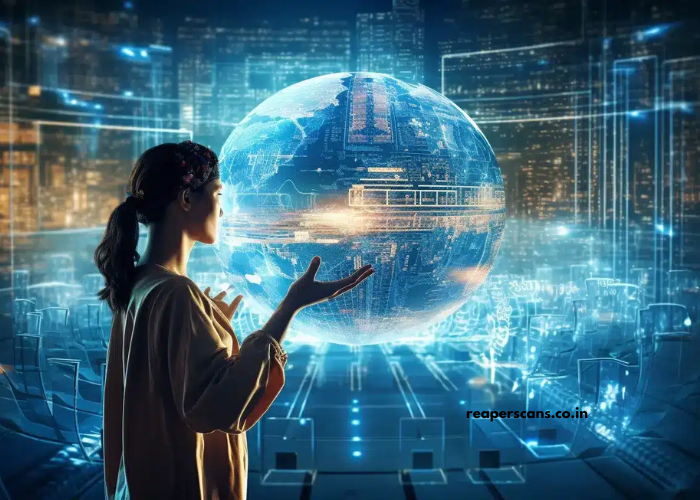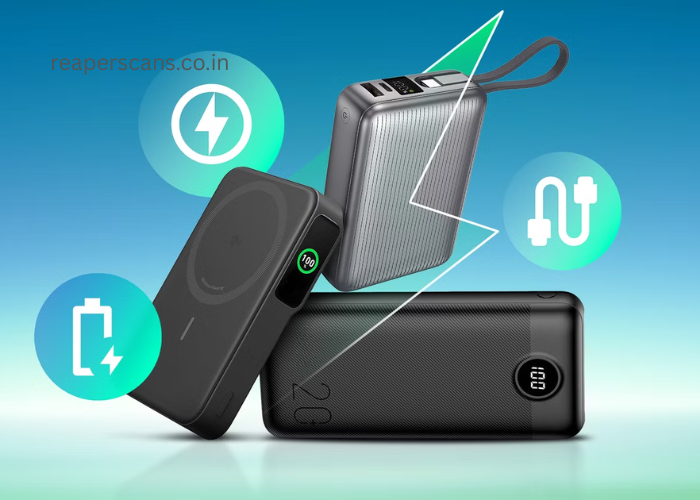The rapid pace of technological advancements continues to transform industries and societies worldwide. In the coming years, several emerging technologies are poised to redefine how we live, work, and interact. From artificial intelligence (AI) to quantum computing, these cutting-edge innovations are not just changing the way we do business; they’re shaping the very future of humanity.
In this article, we’ll explore the top emerging technology trends that will dominate the future, providing a deep dive into their potential impacts on various sectors. Understanding these trends now can help businesses, governments, and individuals prepare for the future and harness these technologies to their advantage.
The Role of Artificial Intelligence (AI) in Shaping the Future
AI in Healthcare
Artificial Intelligence (AI) has already begun revolutionizing many industries, and healthcare is one area where its impact is particularly significant. AI is making it possible to analyze vast amounts of medical data, improving diagnostics, treatment plans, and patient outcomes. Machine learning algorithms can now assist in detecting diseases like cancer at earlier, more treatable stages, and AI-powered robots are assisting in surgery with precision.
Additionally, AI-driven predictive analytics can help identify potential health risks in populations, allowing for preventive measures to be taken ahead of time. As these technologies evolve, AI will continue to improve patient care, reduce costs, and streamline the healthcare system.
AI in Automation and the Workforce
Another transformative aspect of AI is automation. Businesses across industries are leveraging AI to automate routine tasks, reducing the need for human intervention in repetitive processes. This increases efficiency and reduces costs, but it also presents challenges for the workforce.
AI is predicted to lead to job displacement in some sectors. However, it will also create new job opportunities in emerging fields like AI development, robotics, and data science. The key to navigating this shift will be reskilling workers and preparing the workforce for the new roles that AI and automation will generate.
Quantum Computing: The Next Frontier in Technology
Unlocking New Computational Possibilities
Quantum computing is an area of research that promises to revolutionize computing by solving problems that are currently unsolvable with traditional computers. Unlike classical computers, which process information in binary (0s and 1s), quantum computers use quantum bits, or qubits, which can exist in multiple states at once. This enables them to perform complex calculations at unprecedented speeds.
In practical terms, quantum computing could have transformative effects on industries like cryptography, drug discovery, and material science. For example, quantum algorithms could break current encryption standards, prompting the development of new security measures. In drug discovery, quantum computers could simulate molecular interactions, speeding up the process of developing new medications.
Quantum Computing’s Challenges
However, quantum computing is still in its infancy. There are several technical challenges that need to be addressed before quantum computers can be widely used. These include qubit stability, error correction, and scalability. Despite these challenges, progress is being made, with companies like Google, IBM, and Microsoft leading the charge in quantum research.
Blockchain: Beyond Cryptocurrencies
Transforming Supply Chains and Beyond
While blockchain technology is most commonly associated with cryptocurrencies like Bitcoin and Ethereum, its potential extends far beyond digital currencies. Blockchain provides a secure, transparent, and decentralized way of recording transactions, making it ideal for industries that require verifiable and tamper-proof data.
One of the most promising applications of blockchain is in supply chain management. By using blockchain, companies can track the provenance of goods from production to delivery, ensuring that products are authentic and not counterfeited. Additionally, blockchain can streamline logistics and reduce the time and cost associated with supply chain processes.
Blockchain in Governance and Finance
Blockchain is also making waves in finance and governance. In the finance sector, it’s enabling faster, more secure transactions, while also reducing the need for intermediaries like banks. Central banks in some countries are exploring the use of blockchain for digital currencies, which could make transactions cheaper and more efficient.
Governments are also experimenting with blockchain for secure voting systems, land registries, and identity management. The technology could reduce corruption, improve transparency, and create more efficient systems for citizens.
5G Technology: Connecting the World at Lightning Speed
Enabling the Internet of Things (IoT)
5G is the next generation of wireless technology, and it’s set to change the way we connect with devices and the internet. With faster speeds, lower latency, and greater bandwidth, 5G will enable a new wave of connectivity, supporting the massive growth of the Internet of Things (IoT).
IoT refers to the network of physical devices—such as smart home appliances, connected cars, and wearable health devices—that are interconnected via the internet. With the high-speed, low-latency capabilities of 5G, IoT devices will become more reliable and responsive, enabling new use cases in industries like healthcare, transportation, and smart cities.
5G’s Impact on Entertainment and Media
5G will also have a significant impact on entertainment and media. With its faster download speeds, consumers will be able to stream high-definition video content on their mobile devices without buffering. Additionally, 5G will enable immersive experiences in virtual and augmented reality (VR/AR), paving the way for new entertainment formats, from gaming to virtual tourism.
Smart Cities and Infrastructure
5G will also play a key role in the development of smart cities. With its ability to support large-scale IoT deployments, 5G will enable cities to improve their infrastructure, reduce energy consumption, and offer better services to residents. For instance, traffic management systems could be enhanced with real-time data from connected vehicles, while public services like waste management and energy grids could become more efficient.
Extended Reality (XR): Augmented, Virtual, and Mixed Reality
Augmented Reality (AR) and Virtual Reality (VR)
Extended Reality (XR) is an umbrella term that encompasses Augmented Reality (AR), Virtual Reality (VR), and Mixed Reality (MR). These immersive technologies are already making waves in industries like gaming and entertainment, but their applications go far beyond that.
In education, AR and VR can create engaging learning experiences that allow students to explore complex concepts in an interactive way. For example, VR can simulate historical events or allow students to take virtual field trips to distant locations. AR, on the other hand, can overlay information onto the real world, helping users navigate spaces, identify objects, or learn new skills.
XR in Healthcare and Training
In healthcare, XR technologies are being used for training medical professionals and assisting in surgery. Surgeons can practice complex procedures in VR before performing them on patients, while AR can help guide them during surgery by overlaying critical information on the patient’s body.
In the corporate world, XR is transforming training and employee development. VR training simulations are already used in industries like aviation and manufacturing to give workers hands-on experience in a safe, controlled environment.
The Rise of Autonomous Systems
Autonomous Vehicles
Autonomous systems, particularly self-driving vehicles, are another emerging technology trend with the potential to change how we live. Self-driving cars and trucks, powered by AI, sensors, and machine learning, are already being tested on public roads, and they hold the promise of revolutionizing transportation.
Self-driving vehicles could reduce accidents caused by human error, lower transportation costs, and improve the efficiency of traffic systems. Additionally, autonomous vehicles could have a profound impact on industries like logistics, where self-driving trucks could deliver goods more efficiently than human-driven vehicles.
Autonomous Drones and Robotics
In addition to autonomous vehicles, drones and robots are becoming increasingly autonomous. Drones are already being used for delivery, surveillance, and environmental monitoring, while robots are taking over tasks in manufacturing and logistics.
As AI and machine learning algorithms improve, these systems will become even more capable, allowing them to perform more complex tasks with greater precision and safety.
Conclusion: Preparing for a Technologically Driven Future
The emerging technologies discussed in this article are poised to reshape the world in profound ways. From AI and quantum computing to blockchain and 5G, these innovations will drive significant changes across industries, creating new opportunities and challenges. While the future may seem uncertain, one thing is clear: the technologies of tomorrow will be integral to solving some of the most pressing issues facing society today, from healthcare to climate change.
For businesses and individuals, staying informed about these emerging trends is essential for staying competitive in an increasingly tech-driven world. Embracing these technologies and adapting to their evolving capabilities will not only help organizations stay ahead but also position them to thrive in the future. As we continue to innovate and push the boundaries of what’s possible, the future looks bright—and full of endless possibilities.





